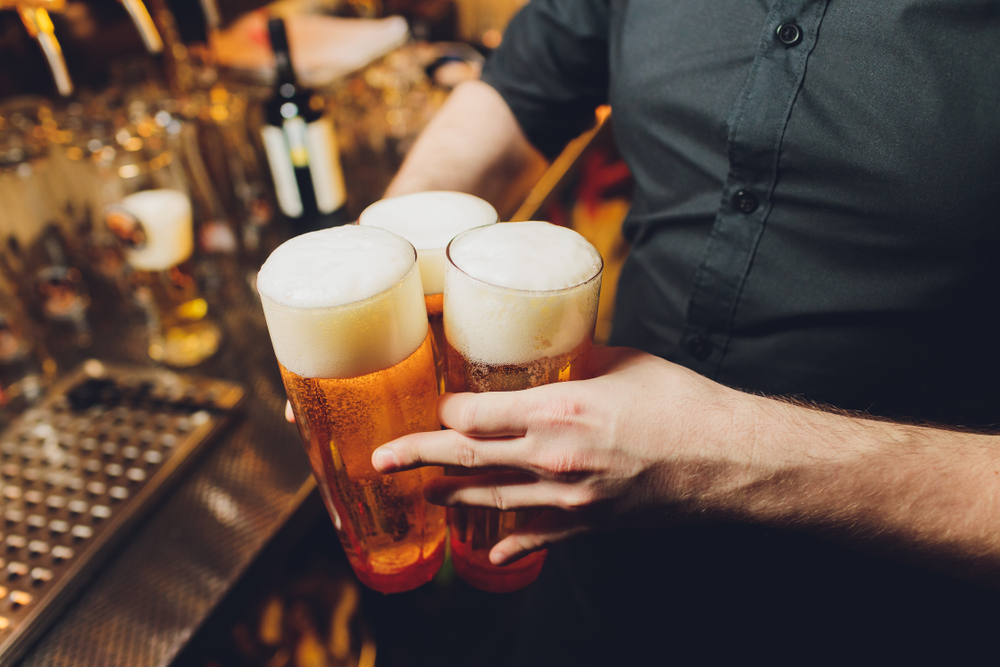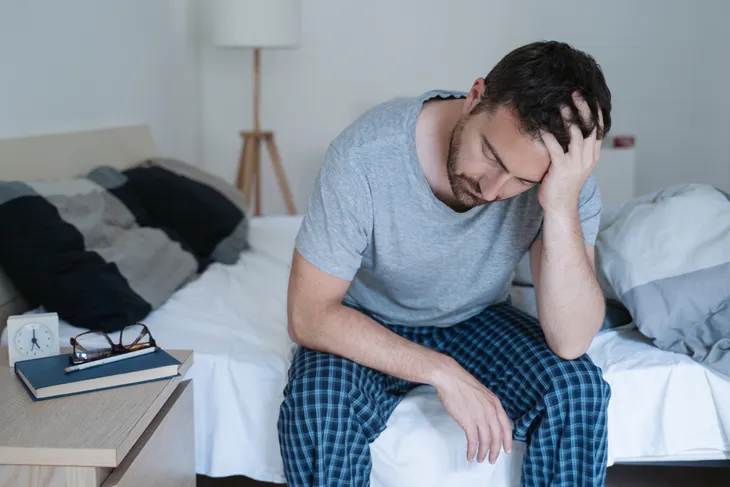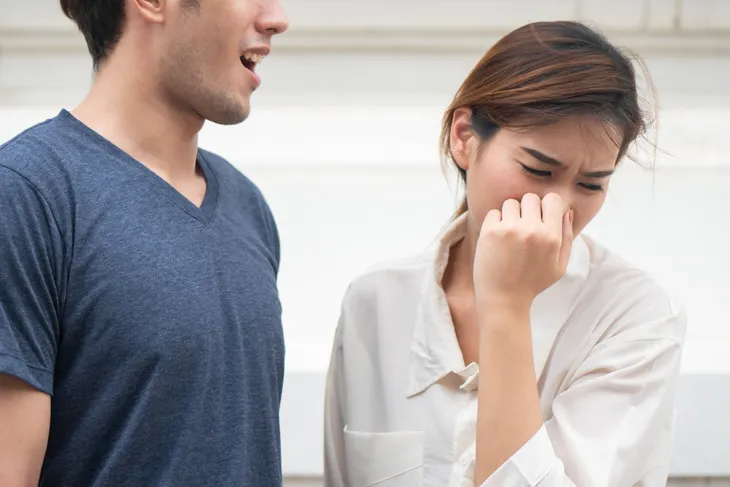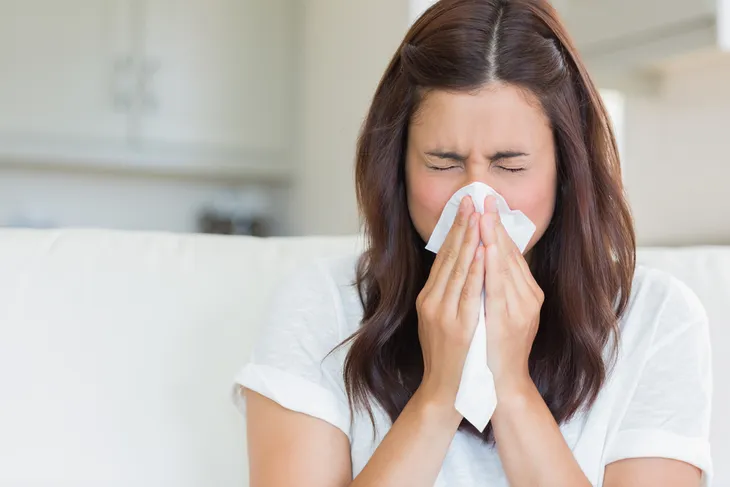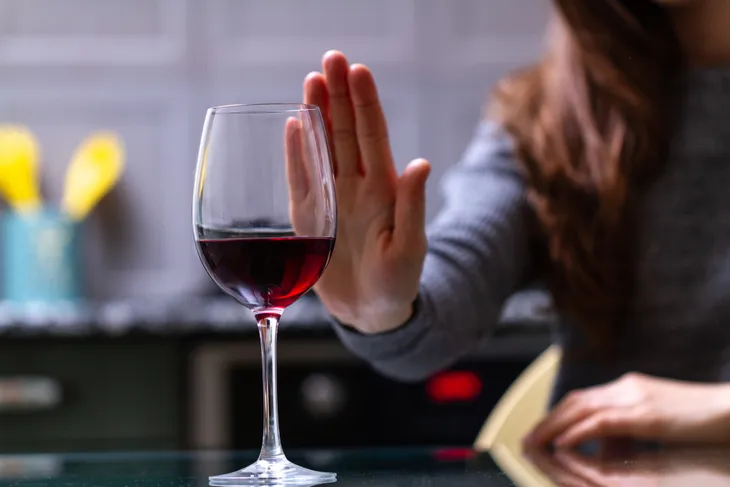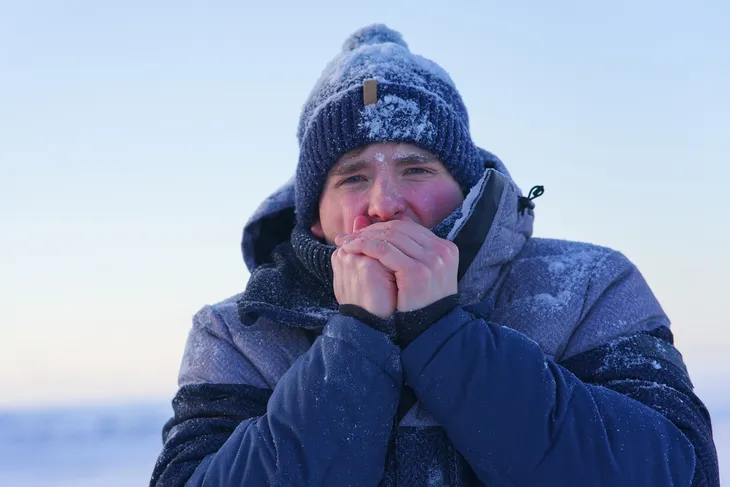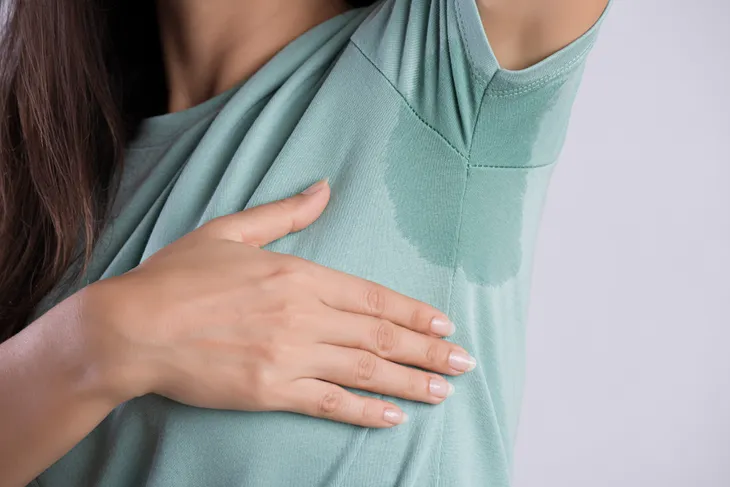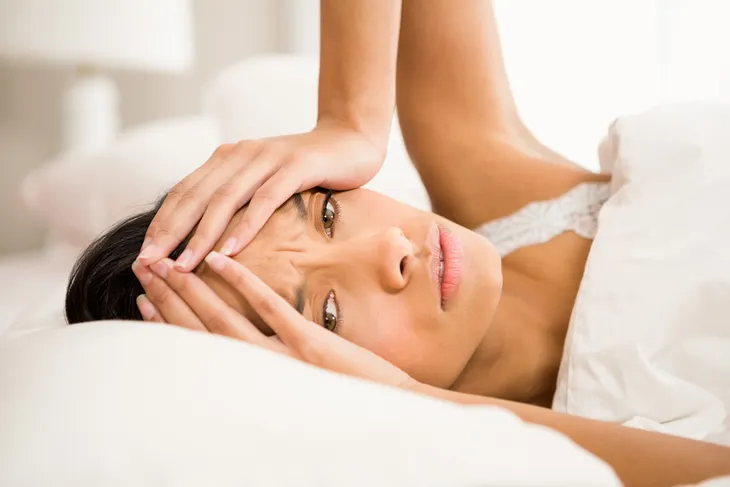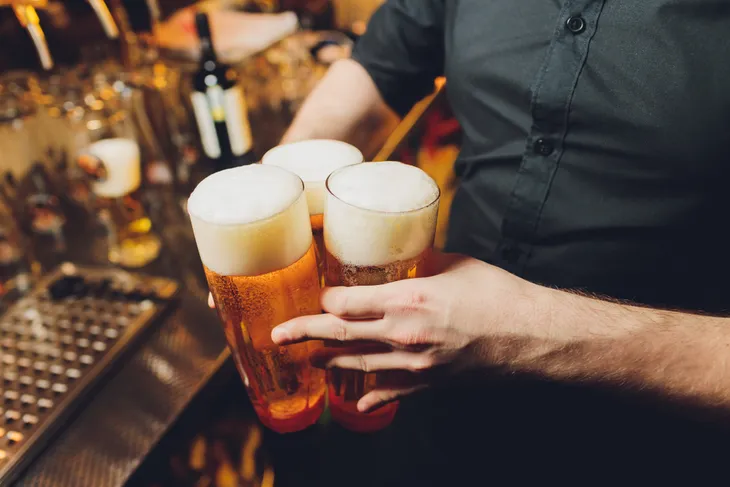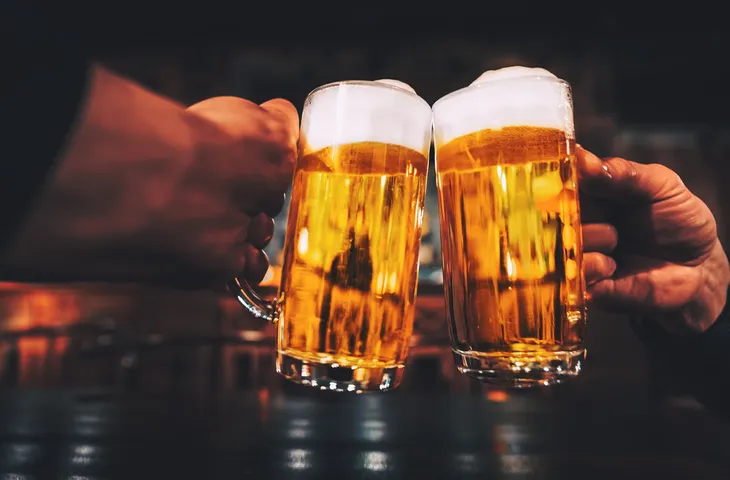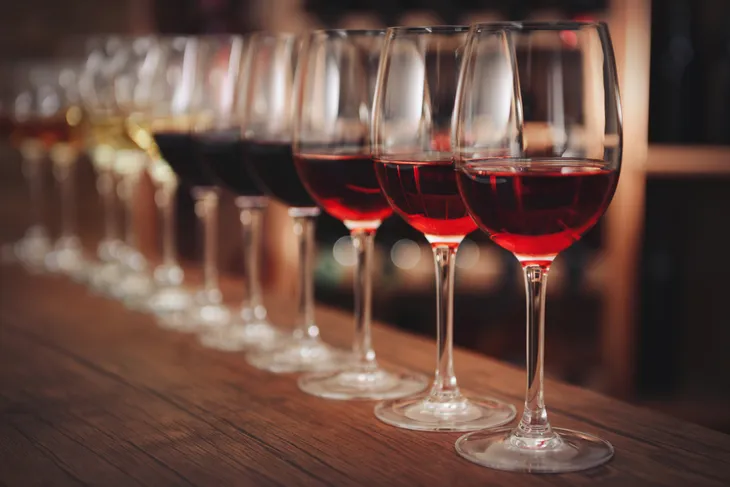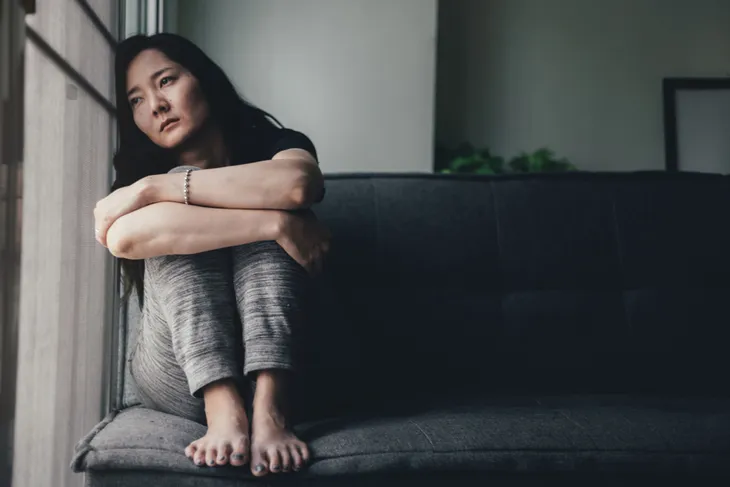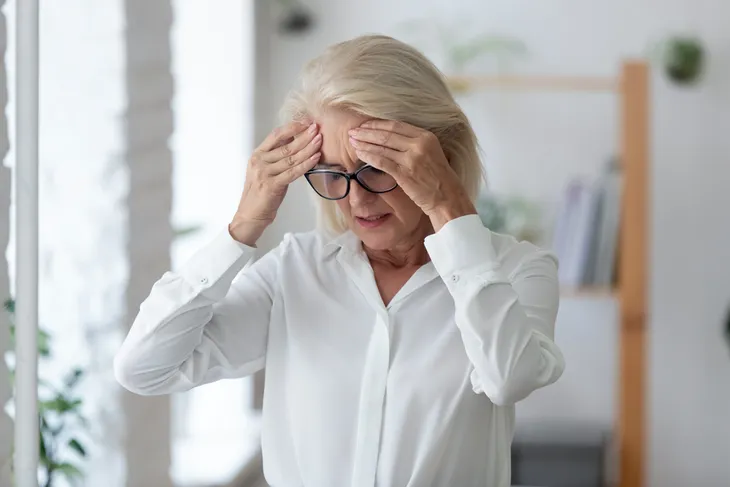- Hangovers and substance abuse are two side effects of drinking you probably know about.
- But alcohol can do a wide range of weird things to your body.
- So, we’ve rounded up 12 strange side effects that some people experience when drinking.
You probably know that excessive drinking is unhealthy, but you might not know that even casual drinking can cause weird things to happen to your body. For instance, drinking can cause nightmares and make you sneezy.
In fact, alcohol can affect your body in several ways beyond hangovers. Let’s dig into the details of 12 weird things that drinking does to your body.
A Bad Night’s Sleep
While you might think a nightcap helps you fall asleep, experts say drinking can get in the way of a good night’s sleep. A study of more than 4,000 people found that even moderate drinking disrupts sleep quality, according to Eat This, Not That!
In the study, moderate drinking reduced sleep quality by 24-percent. Moderate drinking was defined as two drinks per day for men and one for women. And Queensland Health says alcohol disrupts REM sleep, which can cause vivid nightmares.
Bad Breath
Similar to cigarette and coffee breath, alcohol breath is also an issue. Much like cigarettes and coffee, alcohol can inhibit saliva production. If you don’t have enough saliva, then it can be challenging for your mouth to wash away bad breath-causing bacteria naturally.
Research also found that excessive alcohol consumption “is bad for maintaining a healthy balance of microbes in the mouth.” Alcohol can reduce the amount of “good bacteria” and increase the amount of “potentially harmful bacteria,” to put it another way.
Allergy-Like Symptoms
Did you know that alcohol can trigger allergy-like reactions in some people? Queensland Health says some alcoholic beverages contain sulfites, which can make some people feel “sneezy, stuffy, wheezy or itchy” after drinking. In other words, symptoms can mimic hay fever.
So, what drinks have high levels of sulfites? For one thing, the source says wine and cider have sulfites. Additionally, some beverages that are commonly mixed with alcohol have sulfites. For example, the source lists concentrated fruit drinks and bottled lemon or lime juices.
A Red Nose
If you have rosacea, then alcohol may make the condition worse. That’s because “alcohol dilates blood vessels in the face and especially the nose,” according to Eat This, Not That! Red wine, in particular, can cause rosacea flare-ups.
Since red wine has “histamine-like compounds called tyramine,” the source says it may be more likely to cause a red nose. For example, a survey found that red wine caused rosacea flare-ups in 76-percent of participants. On the other hand, white wine caused flare-ups in 33-percent of participants.
Makes You Colder
Have you ever heard that alcohol warms you up? Well, it’s not quite that simple. Eat This, Not That! says alcohol is a vasodilator, “boosting the volume of blood in the capillaries under the surface of your skin.” While that might make you feel warmer, the source says it can lower your core temperature.
That means alcohol can make it difficult to gauge how cold your body temperature is. Additionally, a study found that drinking alcohol reduces shivering and metabolic rate by 13-percent. Shivering is a response that helps warm the body, so alcohol can get in the way of warming up.
More Sweat
Sweating more than usual is another weird byproduct of drinking. Since alcohol is dehydrating, Bustle says it can make it challenging for your body to regulate temperature. As a result, your body might increase sweat production.
Even though alcohol can lower your core temperature, it can create a false warming sensation. As Medical News Today puts it, “dilated blood vessels cause the skin to feel warm and flushed.” That warming sensation can trigger excessive sweat.
Stops New Memories
While you might think that drinking alcohol makes you forgetful, Queensland Health says that’s not what’s happening. Instead, alcohol can stop the brain from creating new memories while a person is drunk. The source says alcohol particularly impedes the formation of new long-term memories.
So, you might “remember” where you put something in the short term. But you may no longer “remember” when you wake up the next morning. That’s why some people feel like they blacked out after drinking, according to the source.
Others Seem More “Intentional”
Lifehacker says alcohol can also cause drinkers to make snap judgments and think accidents are intentional. People can typically avoid their “natural intentionality bias,” but the source says alcohol can get in the way.
So, you might automatically think the person next to you intentionally spilled their drink instead of taking a beat to realize it was probably an accident. The source says this phenomenon may help explain why heated arguments and bar altercations can accompany alcohol drinking.
Beer Goggles
If you think beer goggles are purely a myth, then we’ve got some news for you. According to research, there actually may be some truth to the notion that drinking alcohol can make others seem more attractive. A recent study looked for a link between intoxication and perceptions of attractiveness.
Participants were asked to indicate whether a letter was oriented correctly while “attractive” and “unattractive” faces were shown as a distraction. Sober participants were only distracted by “attractive” faces. But intoxicated subjects were distracted by both. So, alcohol may cause beer goggles.
Congeners = Worse Hangovers
Since every type of alcohol is dehydrating, any alcoholic beverage can cause a hangover. “But hangovers do range in severity depending on the type of alcohol,” according to Thrillist, “thanks to congeners.”
While congeners can contribute to color and flavor, Queensland Health says they can “irritate blood vessels and tissues in your brain.” In turn, they can increase the severity of hangover symptoms like headaches. The source says darker drinks such as red wine and brandy have more congeners.
Triggers Anxiety
“That stress you feel after a night out might be more than just regret,” according to Bustle. It could be a phenomenon called “hangxiety.” Since drinking alcohol can change your levels of serotonin and other neurotransmitters, the source says a social anxiety hangover can emerge when levels try to realign.
The source references research that looked at how drinking alcohol affects shy people. “A significant increase in anxiety the day following drinking was observed in highly-shy participants,” according to the study. So, some people may feel anxious when they’re hungover.
Lowers Blood Sugar Levels
Low blood sugar levels are another reason you might feel anxious after drinking. “As your body gets alcohol out of your system,” Queensland Health says, “your blood sugar levels drop.” As a result, you may experience feelings of worry or anxiety.
Additionally, Bustle says low blood sugar levels can make you feel weak and shaky after a night of drinking. So, fatigue and dizziness are other weird and unfortunate things you might experience after consuming alcohol.
